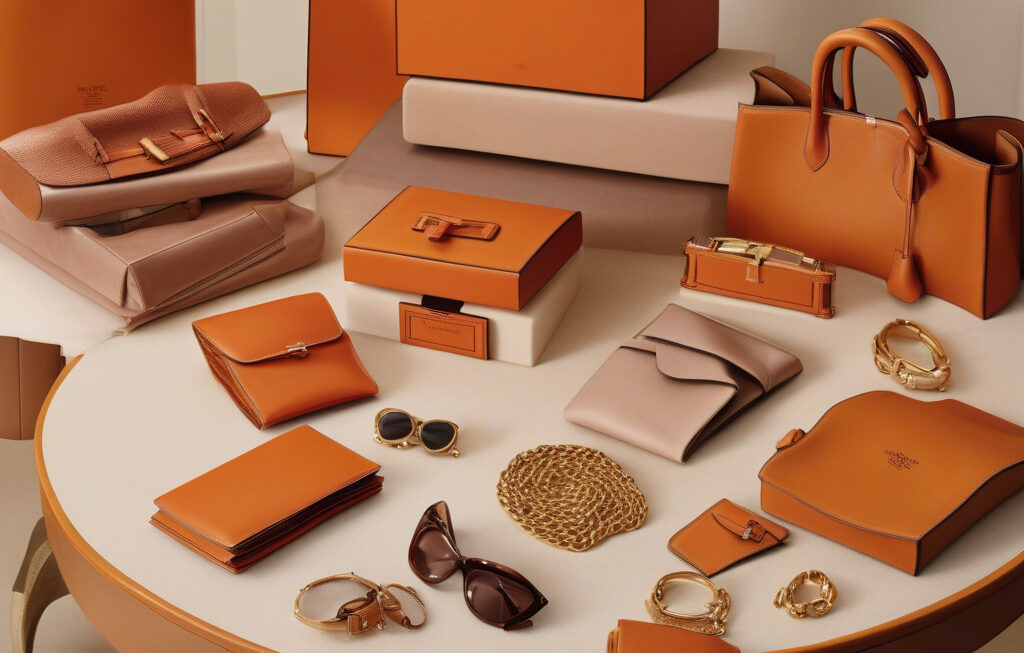Luxury Brands Facing Fake News: The Power of Silence
Luxury megabrands such as Hermès, Chanel, and Louis Vuitton are no strangers to the spotlight. Known for their impeccable craftsmanship, exclusivity, and timeless allure, these fashion houses have built empires based on tradition, quality, and prestige. However, in the age of social media and viral trends, even the most established brands are not immune to misinformation and fake news.
Recently, a wave of viral TikTok videos has been circulating, claiming that luxury bags from top brands like Hermès, Chanel, and Louis Vuitton are manufactured in China. These videos, despite being entirely false, have garnered significant attention and engagement, leading to concerns about the potential damage to the brands’ reputations and the spread of misinformation among consumers.
In response to these allegations, some companies have taken a proactive approach, swiftly addressing the rumors and setting the record straight. However, notably absent from the public discourse are Hermès, Chanel, and Louis Vuitton, who have chosen to remain silent in the face of these fake news claims.
The question that arises is whether silence is the right strategy for luxury brands facing fake news. In an era where information spreads rapidly and perceptions can be easily swayed, the choice to stay silent can be a double-edged sword. On one hand, responding to every false claim or online rumor can potentially amplify the reach of misinformation and give it undue credibility. On the other hand, failing to address such allegations can leave room for doubt and speculation to fester, eroding consumer trust and tarnishing the brand’s image over time.
Luxury brands like Hermès, Chanel, and Louis Vuitton have built their reputations on a foundation of heritage, authenticity, and craftsmanship. Their silence in the face of fake news may be interpreted as a sign of confidence in their products and a refusal to dignify baseless accusations with a response. By maintaining a dignified silence, these brands may be signaling to their discerning clientele that they are above the fray, secure in the knowledge that their quality speaks for itself.
Moreover, by choosing not to engage with every online rumor or social media storm, luxury brands can maintain an air of mystique and exclusivity that sets them apart from fast fashion or mass-market competitors. In an age where authenticity and transparency are valued more than ever, the art of selective silence can be a powerful tool for luxury brands to convey a sense of confidence and composure in the face of external scrutiny.
However, the risks of remaining silent in the face of fake news should not be underestimated. In an era where consumer trust is fragile and brand loyalty can be easily swayed, failing to address false claims promptly and decisively can have lasting repercussions on a brand’s reputation and bottom line. In a landscape where perception is reality, luxury brands must weigh the pros and cons of silence as a strategy for combating fake news and protecting their image in the eyes of consumers.
In conclusion, the issue of fake news poses a unique challenge for luxury brands like Hermès, Chanel, and Louis Vuitton. While the power of silence can be a strategic choice in certain circumstances, the risks of not addressing false claims and misinformation should not be overlooked. As the digital landscape continues to evolve, luxury brands must navigate the delicate balance between preserving their mystique and authenticity while also safeguarding their reputation and consumer trust in the face of online scrutiny and viral misinformation.
luxury, fake news, silence, reputation, social media












